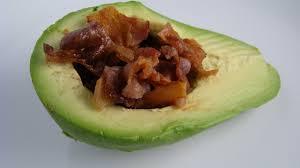Fat!
Fat!
Eat fat, lose fat! Don't be afraid of your fats! The trendy years of "fat free" are finally over. Science has shown this fad diet holds no true health benefits. In addition to being unnatural and unsatisfying, this way of eating promotes diabetes and heart disease through the overconsumption of carbohydrates, and deprives the body of long-sustaining energy sources while depleting essential nutrients like fat soluble vitamins. Fat is so critical to health that no human cell can be made without it! That's right- the "dreaded" cholesterol is an ESSENTIAL component to our cell membranes. But hear me clearly: all fats are NOT created equal. Hydrogenated trans fats and heavily processed vegetable oils are detrimental to your health. So what do I recommend?
One of my favorite fats is Medium Chain Fatty Acid, or MCTs. Extra virgin coconut oil is rich in MCTs, and may enhance metabolism, burn fat, increase energy, and support healthy cholesterol levels by increasing your HDL ("good" cholesterol). Need more reasons to get extra virgin coconut oil in your diet? It's anti-bacterial, anti-viral, anti-fungal and easily digestible!
How about those Omegas we keep hearing about? Found in rich sources such as flaxseeds, chia seeds, avocados, walnuts, and Alaskan salmon, omegas have been shown to have positive effects on heart health and blood pressure. Be sure to find sprouted seeds and nuts to unlock beneficial enzymes while reducing potentially irritating lectins and phytic acid.
Last but definitely not least, animal fats like pasture-raised lard and butter contain high amounts of Vitamin D and Vitamin K-2 (found only in fat from grass-fed animals). These rare nutrients play many crucial roles from thyroid function to mood to metabolism.
What you do with your fats before you consume them is also important. Solid fats like coconut oil, butter, and lard may be used in cooking and baking without losing their nutritional integrity. More fragile oils such as olive and hemp are best consumed raw on salads or drizzled over food after cooking.
So you've bought the good fats, and you know what to do with them, but how much do you eat? Getting the right amount of fat in your diet is also important. In my experience, a diet of 40% fat, 40% protein, and 20% carbohydrates is the most beneficial for health and weight management. Carbohydrates should come from nutrient-dense, organic vegetables and fruits like seaweed, kale, goji berries, and tomatoes. Sprouted organic grains can make up about 50% of your carbohydrate intake while adding protein, fiber, B-vitamins, and iron.
In conclusion, I say: You may have your grass-fed bacon and eat it, too! But skip the cake.
Remember that a Customized Program like my Bio-Specific Plan provides a more comprehensive approach to achieving optimal results.
Vito Lasprugato
Certified Nutritionist, Certified Fasting Specialist, Certified Fitness Professional
Be the first to post a message!
